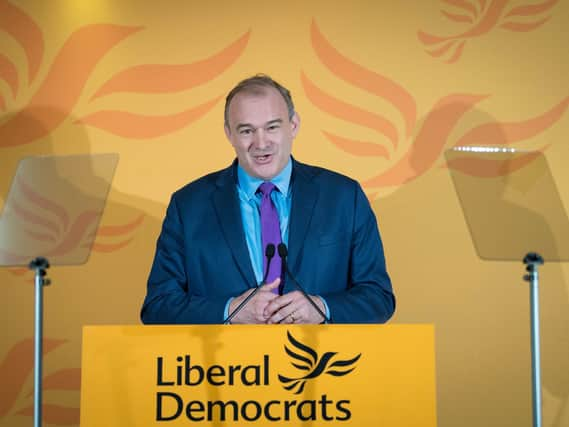Taxpayers feel under pressure to release equity in their home to settle loan charge, MPs claim


The All Party Parliamentary Loan Charge Group has written to Jim Harra, the chief executive and permanent secretary of HM Revenue and Customs, to express their concerns about the legality of HMRC providing this type of advice to taxpayers.
The letter, which has been signed by Liberal Democrat Party leader Sir Ed Davey, Labour MP Ruth Cadbury and Tory MP Sir Mike Penning says; “We have seen evidence that shows HMRC are requesting that individuals impacted by the loan charge take equity release on their primary home or remortgage their primary home in order to pay loan-based settlement demands.
Advertisement
Hide AdAdvertisement
Hide Ad“We do not believe this is acceptable,’’the letter continues. “In some cases, the only way people can release equity is by selling their main home, which runs contrary to the misleading impression HMRC have sought to give that people are not at risk of losing their homes, when they clearly are and in some cases have already lost their homes, due to HMRC demands related to loan schemes.
The MPs’ letter continues: “We are also concerned at the legality of HMRC providing such advice to taxpayers, when regulated lenders have made clear that remortgaging cannot be granted for the purpose of paying tax liabilities of this nature.
“Any attempts by HMRC to make requests for individuals to raise cash via equity release signifies a potential for HMRC to be perceived as financial advisers, when that is clearly not within their remit.
The letter continues: “You are already well aware that there are many people who are deemed vulnerable, including the reporting of suicidal thoughts, facing the Loan Charge and involved in settlement discussions with HMRC.
Advertisement
Hide AdAdvertisement
Hide Ad“Putting undue pressure on such people to release equity to pay off disputed tax bills, that have never been legally proven, is also unethical. People are reporting that they feel pressurised and coerced into releasing equity by HMRC.”
An HMRC spokesperson said: “HMRC has listened to concerns about the affordability of the loan charge and have made a number of changes to address those concerns. We will work with all individuals to find a manageable and sustainable solution to paying their disguised remuneration debts.
“HMRC would never expect anyone to take on an unaffordable loan or to mislead lenders when applying for a loan. Taking a loan is a decision for the individual taxpayer to consider after taking appropriate professional advice. HMRC does not give financial advice.”
A spokesman said HMRC would be responding to the APPG’s letter in due course.
Advertisement
Hide AdAdvertisement
Hide AdThe Loan Charge, announced by Government in 2016, was designed to tackle tax avoidance schemes where individuals receive income in the form of loans that are not repaid to avoid income tax.
Sir Amyas Morse, the former Comptroller and Auditor General and Chief Executive of the National Audit Office, was commissioned to undertake a review into the loan charge in September 2019 by the then Chancellor Sajid Javid, following a long-running campaign from MPs and affected individuals.
While the review concluded that there was a clear public interest in preventing the use of loan schemes to avoid tax and in maintaining the principle of taxpayers being responsible for their tax affairs, it concluded that the loan charge went too far.
The review found that it overrode taxpayers’ statutory protections by applying an unprecedented 20 year look back period and failing to adequately consider the serious distress it would cause some of those affected.
Advertisement
Hide AdAdvertisement
Hide AdThe review also identified failings in the approach HMRC took to enforcing the policy, which in some cases, fell short of the standards the public has a right to expect; particularly in cases where life changing sums of money are at stake.
The Government said it recognised the concerns raised in the review about the impact on individuals and fairness of some aspects of the Loan Charge. To address them, all but one of the recommendations have been accepted.
Support The Yorkshire Post and become a subscriber today.
Your subscription will help us to continue to bring quality news to the people of Yorkshire. In return, you'll see fewer ads on site, get free access to our app and receive exclusive members-only offers.
So, please - if you can - pay for our work. Just £5 per month is the starting point. If you think that which we are trying to achieve is worth more, you can pay us what you think we are worth. By doing so, you will be investing in something that is becoming increasingly rare. Independent journalism that cares less about right and left and more about right and wrong. Journalism you can trust.
Thank you
James Mitchinson
Comment Guidelines
National World encourages reader discussion on our stories. User feedback, insights and back-and-forth exchanges add a rich layer of context to reporting. Please review our Community Guidelines before commenting.